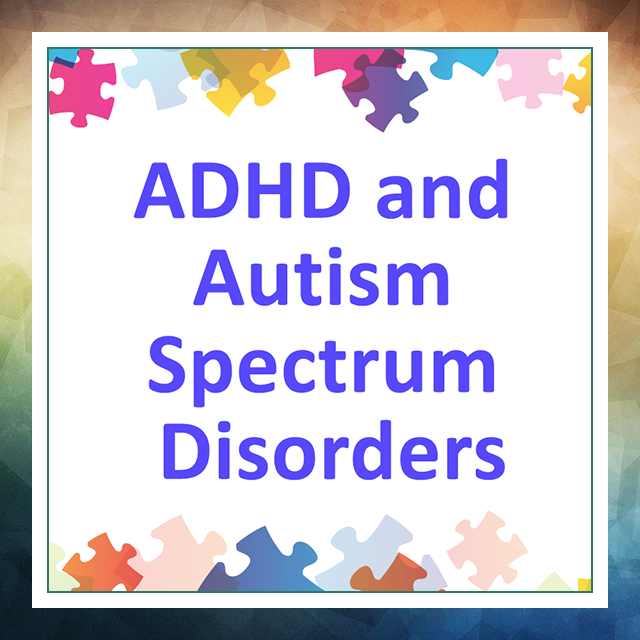Functional Nutrition in ADHD and Autism Spectrum Disorders
2024 ADHD/Autism

Please fill out this course evaluation survey.
*** Please Note ***
- Live session individual module registrants – access ends Oct. 11th, 2024.
- COT Full Course Bundle registrants – access is given for the full duration of tenure in our program!
- If you purchased as a recorded series you have six months from your date of purchase.
Overview:
Both ADHD and ASD are neurodevelopmental disorders (brain development has been affected in some way). That means both conditions/disorders affect the central nervous system, which is responsible for movement, language, memory, and social and focusing skills. ASD has many similarities to ADHD, but there are also differences between the two.
In this training, we’ll examine the various subtypes under the umbrella of autism spectrum disorders (ASD) and potential, contributing factors for ADHD and ASD development. The critical roles of methylation and genomics, oxidative stress, gastrointestinal function, microbiome, and the immune system in relation to ASD will be explored in depth.
You will be provided evidence-based comprehensive coverage of the clinician’s role in the management of ADHD/ASD disorders, including personalization/specialty diets, interventions for difficult eating behaviors, and supplemental support options. Various adjunct therapies will also be explored.
Upgrade:
Want more? You’ve signed up for this training to expand your knowledge and skills in a great topic. This is a great way to stay at the top of your game as a clinician.
As the application of Functional Nutrition can be complex and many topics are interwoven, those who take a more comprehensive approach to their training come away with the lion’s share of opportunity, not to mention the highest level of confidence in clinical application.
If you’d like to stay on the leading edge, have higher earning potential, and have more impact in your clinical care than ever before, we invite you to upgrade to our certificate of training bundle program. Become a credentialed Functional Medicine Nutritional Specialist (FMNS) with over 450 hours of professional training in the most comprehensive program that exists today!
Speak with a program specialist to learn more – email your request HERE.
Objectives:
After completion of this course, learners will be able to:
- Describe how Autism is multi-factorial in origin and how the conditions/behaviors develop as a result of those factors.
- Identify the role of gastrointestinal function, immune system, and microbiome in Autism.
- Explore the impact of chronic exposure to toxins on the body and how to assist the methylation pathways when a child is genetically vulnerable.
- Summarize the potential impact of various foods on ASD symptomology and the challenges of feeding this delicate population.
- Discuss the role of dietary supplements and how to effectively use them while keeping in mind methylation, genetics, and methods of ingestion..
Exercises:
- List 5 different, potential, contributing factors to the development of autism.
- Describe the relationship between inflammation, immunity, and autism?
- List 3 SNP’s that hinder the methylation process and how it may impact a child with ASD.
- List 3 foods that contribute to hyperpermeability of the gut and potentially worsen ASD behaviors/symptoms; and list 5 changes in the diet that help mitigate this problem.
- Detail the differences between Th1, Th2, Th17, and TReg and what happens in the body when out of balance. What specifically leads to a Th1/TH2 imbalance?
- List 3 neuroprotective supplements, 2 useful botanical agents, and 2 calming essential oils.
- List 5 different, potential, contributing factors to the development of autism.
- Describe the relationship between inflammation, immunity, and autism?
- List 3 SNP’s that hinder the methylation process and how it may impact a child with ASD.
- List 3 foods that contribute to hyperpermeability of the gut and potentially worsen ASD behaviors/symptoms; and list 5 changes in the diet that help mitigate this problem.
- Detail the differences between Th1, Th2, Th17, and TReg and what happens in the body when out of balance. What specifically leads to a Th1/TH2 imbalance?
- List 3 neuroprotective supplements, 2 useful botanical agents, and 2 calming essential oils.
Course Modules
| Module 1 | ADHD/Autism |
|---|---|
| Unit 1 | ADHD/Autism |
| Unit 2 | ADHD/Autism Quiz |
| Unit 3 | ADHD/Autism CPE |
| Module 2 | Therapeutic Uses Of The Ketogenic Diet |
| Unit 1 | Therapeutic Uses of the Ketogenic Diet |
| Unit 2 | Ketogenic Diet Quiz |
